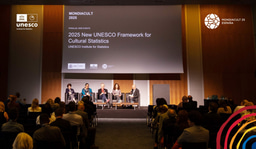Biophilic business: how cultural heritage and informal economies can reshape sustainability
Published in Social Sciences, Sustainability, and Economics

Our article, co-authored with @Dr. Giovanna Di Mauro, explores how micro and home-based businesses that foster bio-cultural connections with the environment - what we define as biophilic businesses - are reframing sustainability through heritage, nature, and local knowledge. Drawing inspiration from the vibrant cultural ecosystems of Abu Dhabi - alongside cities such as New Delhi, Salalah, Naples, and others - the article highlights how these businesses are reimagining sustainability from the ground up.
What is a biophilic business?
The term biophilia, coined by Erich Fromm and later popularized by Edward Wilson, refers to the innate human connection to life and living systems. While originally associated with architecture and design, the concept has since expanded into urbanism, psychology, and now, business. A biophilic business deeply integrates ecological values, cultural heritage, and local knowledge into its core operations. These businesses work with nature - not just for aesthetic appeal but as a guiding principle for materials, methods, and meaning. As David Jones notes, biophilic organizations are grounded in a root metaphor: their very raison d’être is to foster bio-cultural connections with the environment.
Why do these businesses matter?
Amid trade tensions, regional conflicts, and global supply chain disruptions, local-level resilience has become critical. Biophilic businesses can help reshape our economic model due to their core characteristics outlined in our article.
The economic case for biophilia
Conventional economic frameworks - focused on GDP growth, formal employment, and industrial expansion - often overlook the value created by biophilic businesses. This points to the need to better capture an integrated set of new indicators, including:
- The informal economy’s role in cultural ecosystems.
- The social and ecological externalities embedded in production, from living heritage values and environmental policies to climate-smart business solutions.
-
The use of biological resources, qualifying such work under the evolving definitions of bioeconomy.
A vision for the future: Biophilic principles in business and policy
To foster regenerative systems, we must rethink the futures we are planning for. Our article explores how applying Sohail Inayatullah’s Six Pillars framework can help position biophilic businesses - where culture, nature, and community meet - as catalysts for more inclusive, sustainable and future economic systems.
References
-
Fromm, E. (1964). The heart of man: Its genius for good and evil. Harper & Row.
Inayatullah, S. (2008). Six pillars: Futures thinking for transforming. Foresight, 10(1), 4–21. https://doi.org/10.1108/14636680810855991 - Jones, P. (2015). Designing for a biophilic future: The biophilic organization. Journal of Organizational Change Management, 28(4), 491–508. https://doi.org/10.1108/JOCM-08-2014-0146
- Raevskikh, E., & Di Mauro, G. (2025, July 22). Biophilic business: How cultural heritage and informal economies can reshape sustainability. World Economic Forum. https://www.weforum.org/stories/2025/07/biophilic-business-sustainability/
- Raevskikh, E., Di Mauro, G., & Jaffré, M. (2024). From living heritage values to value-based policymaking: Exploring new indicators for Abu Dhabi’s sustainable development. Humanities and Social Sciences Communications, 11(1), Article 1311. https://doi.org/10.1057/s41599-024-03841-5
- Singh, R., Langyan, S., Haque, M., & Shrivastava, M. (2022). Bioeconomy: Scope, current status and challenges. In S. Langyan, M. J. Alam, & S. Kumar (Eds.), Biomass, bioenergy & bioeconomy (pp. 233–248). Springer. https://doi.org/10.1007/978-981-19-2912-0_12
- UNESCO. (2024). UNESCO Framework for Cultural Statistics 2024. United Nations Educational, Scientific and Cultural Organization.
- Wilson, E. O. (1984). Biophilia. Harvard University Press.
Media Appearances
-
ComunicarSe. (2025, August 20). Empresas biofílicas: la nueva frontera de la sostenibilidad empresarial. https://www.comunicarseweb.com/noticia/empresas-biofilicas-la-nueva-frontera-de-la-sostenibilidad-empresarial
-
ET Edge Insights. (2025, August 1). Biophilic business: How cultural heritage and informal economies can reshape sustainability. https://etedge-insights.com/sdgs-and-esg/sustainability/biophilic-business-how-cultural-heritage-and-informal-economies-can-reshape-sustainability/
-
The Print. (2025, July 26). What are biophilic businesses? They offer a more inclusive, sustainable economy. https://theprint.in/business/what-are-biophilic-businesses-they-offer-a-more-inclusive-sustainable-economy/2703168/






Please sign in or register for FREE
If you are a registered user on Research Communities by Springer Nature, please sign in